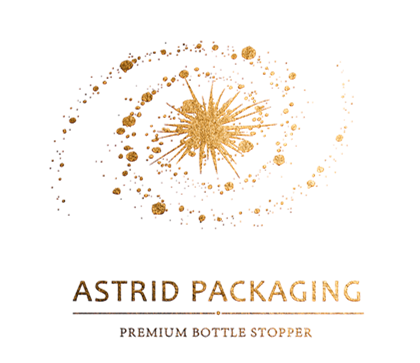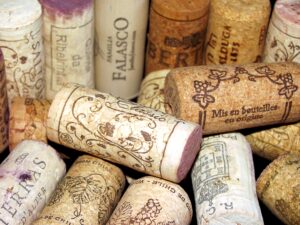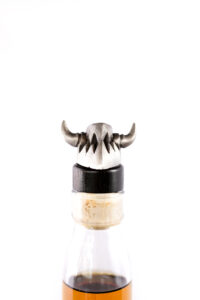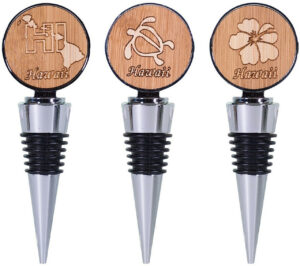Introduction
Definition of wine preservation
Wine preservation refers to the techniques and methods used to maintain the quality and freshness of wine over an extended period of time. It involves protecting the wine from oxidation, heat, light, and other factors that can negatively impact its taste and aroma. The goal of wine preservation is to ensure that the wine retains its original characteristics and flavors, allowing it to be enjoyed at its best. One important aspect of wine preservation is the use of bulk stoppers, which are specifically designed to create an airtight seal and prevent oxygen from entering the bottle. By understanding the importance of bulk stoppers in wine preservation, wine enthusiasts can ensure that their favorite wines remain in optimal condition for longer periods of time.
Importance of wine preservation
Wine preservation is of utmost importance when it comes to maintaining the quality and taste of the precious beverage. Whether you are a wine connoisseur or a casual drinker, understanding the significance of preserving wine is essential. The use of bulk stoppers plays a crucial role in ensuring the longevity of wine by preventing oxidation and spoilage. By creating a barrier between the wine and the air, bulk stoppers help to preserve the flavors, aromas, and overall character of the wine. Without proper preservation, wine can quickly deteriorate, losing its unique qualities and becoming undrinkable. Therefore, it is vital to recognize the importance of wine preservation and invest in high-quality bulk stoppers to safeguard the integrity of your wine collection.
Overview of bulk stoppers
Bulk stoppers are an essential component in the wine preservation process. These stoppers are designed to seal wine bottles, preventing air from entering and causing oxidation. By blocking oxygen exposure, bulk stoppers help maintain the quality and freshness of the wine. They are commonly used in wineries and wine cellars to store large quantities of wine for extended periods. Bulk stoppers come in various materials, such as cork, synthetic materials, and glass. Each material offers different levels of oxygen permeability, allowing winemakers to choose the most suitable stopper for their specific needs. Overall, the use of bulk stoppers is crucial in ensuring that wine retains its flavor, aroma, and character over time.
Types of Bulk Stoppers
Cork stoppers
Cork stoppers have been the traditional choice for wine preservation for centuries. These stoppers are made from the bark of the cork oak tree and provide an airtight seal, preventing oxygen from entering the bottle and spoiling the wine. The use of cork stoppers allows the wine to age gracefully, developing complex flavors and aromas over time. However, there are some drawbacks to using cork stoppers, such as the risk of cork taint, which can impart a musty or moldy taste to the wine. Despite these challenges, cork stoppers remain a popular choice among wine enthusiasts and are a symbol of tradition and craftsmanship in the wine industry.
Screw caps
Screw caps have become increasingly popular as a wine closure option in recent years. This alternative to traditional cork stoppers offers several advantages when it comes to wine preservation. Screw caps provide an airtight seal, preventing oxygen from entering the bottle and causing oxidation. This ensures that the wine maintains its freshness and flavor over time. Additionally, screw caps eliminate the risk of cork taint, a common issue with traditional corks that can result in off-flavors and aromas. With their ease of use and reliable performance, screw caps have gained recognition as a practical and effective method of preserving wine.
Synthetic stoppers
Synthetic stoppers are a popular choice for wine preservation due to their consistent quality and reliability. These stoppers are made from synthetic materials such as plastic or rubber, which provide a tight seal to prevent oxygen from entering the bottle. Unlike natural corks, synthetic stoppers are not susceptible to cork taint, a common issue that can negatively impact the taste and aroma of the wine. Additionally, synthetic stoppers are more affordable and readily available compared to traditional corks. They are also easier to remove, making them a convenient option for both winemakers and consumers. Overall, synthetic stoppers offer a practical solution for preserving wine and ensuring its quality and freshness over time.
Advantages of Bulk Stoppers
Preservation of wine quality
Preservation of wine quality is of utmost importance in the wine industry. The use of bulk stoppers plays a crucial role in ensuring that the wine retains its original taste, aroma, and color. These stoppers, made from high-quality materials, create an airtight seal that prevents oxygen from entering the wine bottle. Oxygen exposure can lead to oxidation, which negatively impacts the flavor and overall quality of the wine. By using bulk stoppers, winemakers can effectively protect their wines and maintain their desired characteristics for a longer period of time. This not only enhances the drinking experience for consumers but also contributes to the reputation and success of wineries in the market.
Cost-effectiveness
Cost-effectiveness is a crucial aspect to consider when it comes to wine preservation. Using bulk stoppers can be a cost-effective solution for both wine producers and consumers. By opting for bulk stoppers, producers can save on packaging costs and reduce waste. Additionally, consumers can benefit from lower prices when purchasing wines that have been preserved using bulk stoppers. This cost-effectiveness not only benefits the bottom line but also promotes sustainability in the wine industry.
Sustainability
Sustainability plays a crucial role in the wine preservation industry. As consumers become more environmentally conscious, the demand for sustainable wine packaging solutions has been on the rise. Bulk stoppers are an excellent example of a sustainable option for wine preservation. These stoppers are made from recyclable materials, reducing the carbon footprint associated with traditional wine closures. By choosing bulk stoppers, wineries and wine enthusiasts can contribute to the preservation of the environment while ensuring the quality and longevity of their wines.
Disadvantages of Bulk Stoppers

Risk of cork taint
The risk of cork taint is a significant concern in the wine industry. Cork taint, also known as TCA contamination, occurs when a chemical compound called trichloroanisole is present in the cork. When a wine is exposed to this compound, it can develop an unpleasant musty odor and taste, rendering the wine undrinkable. This can be a devastating problem for winemakers, as it can lead to financial losses and damage to their reputation. To mitigate the risk of cork taint, many winemakers have turned to alternative bulk stoppers, such as synthetic corks or screw caps, which offer a more reliable seal and eliminate the possibility of TCA contamination. By understanding the importance of bulk stoppers in wine preservation, winemakers can ensure that their wines remain free from cork taint and maintain their quality and integrity.
Limited aging potential
Limited aging potential refers to the fact that not all wines are meant to be aged for long periods of time. While some wines, such as fine red wines, can benefit from aging and develop complex flavors and aromas, others are meant to be enjoyed when they are young and fresh. This is especially true for white wines, rosés, and lighter red wines. These wines are typically made to be consumed within a few years of their release, as they may not have the structure or tannins to improve with age. It is important for wine enthusiasts to understand the aging potential of different wines in order to make informed decisions about when to drink them and how to properly store them. By understanding the limited aging potential of certain wines, wine lovers can ensure that they are enjoying their bottles at their peak and not missing out on their intended flavors and characteristics.
Perception of lower quality
The perception of lower quality is a common concern when it comes to using bulk stoppers for wine preservation. Some wine enthusiasts believe that using bulk stoppers can compromise the integrity and flavor of the wine. They argue that traditional cork stoppers or screw caps provide a better seal and ensure the wine’s quality over time. However, it is important to note that advancements in technology have led to the development of high-quality bulk stoppers that can effectively preserve the wine’s freshness and taste. These stoppers are designed to create a tight seal, preventing oxygen from entering the bottle and causing oxidation. Additionally, bulk stoppers offer a more cost-effective solution for wineries and wine producers, allowing them to preserve larger quantities of wine without compromising on quality. Ultimately, the perception of lower quality associated with bulk stoppers may be outdated, as modern advancements have made them a reliable option for wine preservation.
Proper Storage and Handling
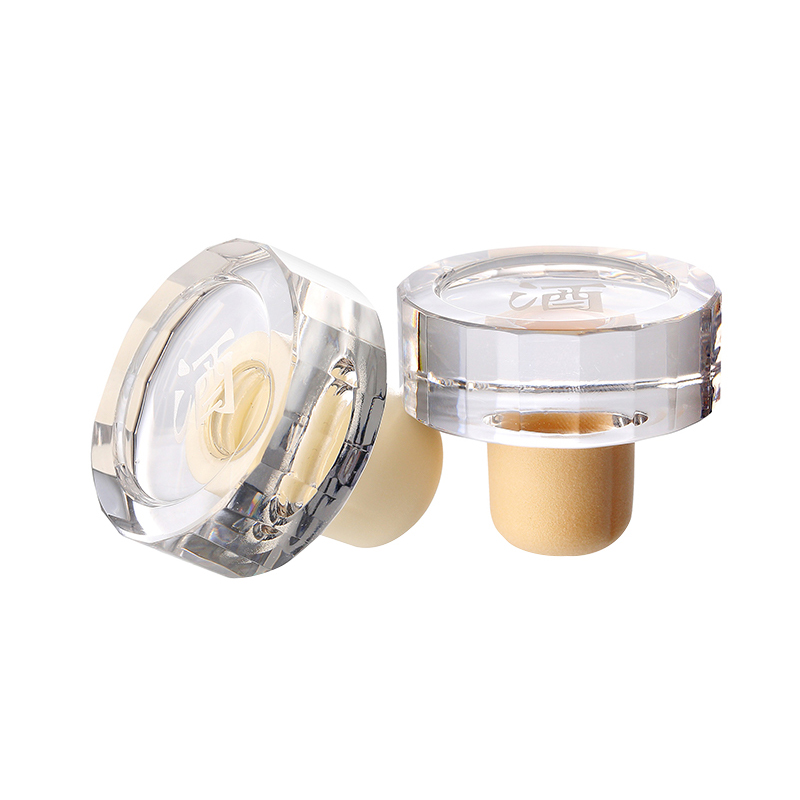
Temperature and humidity control
Temperature and humidity control play a crucial role in wine preservation. Properly maintaining the ideal temperature and humidity levels is essential to ensure the longevity and quality of stored wines. High temperatures can cause the wine to age prematurely, resulting in a loss of flavor and aroma. On the other hand, low temperatures can slow down the aging process but may also lead to the formation of sediments. Similarly, excessive humidity can promote the growth of mold and mildew, while low humidity can cause the corks to dry out and allow air to seep into the bottles. Therefore, it is important to invest in a reliable temperature and humidity control system to create the optimal storage conditions for wines.
Avoiding exposure to light
Avoiding exposure to light is crucial for wine preservation. Light, especially ultraviolet (UV) light, can cause chemical reactions in wine that lead to oxidation and spoilage. This is why wine bottles are usually made of dark-colored glass, as it helps to block out UV rays. Additionally, storing wine in a dark and cool place, such as a cellar or wine fridge, can further protect it from light damage. By taking these precautions, wine enthusiasts can ensure that their wines maintain their quality and flavors for a longer period of time.
Handling with care
When it comes to handling wine with care, there are a few key considerations to keep in mind. First and foremost, it is important to always hold the bottle by the base or the neck, avoiding touching the glass part of the bottle. This helps to prevent any transfer of heat from your hands, which can potentially affect the temperature and quality of the wine. Additionally, it is crucial to avoid shaking or agitating the bottle, as this can disturb the sediment and alter the flavor profile. Lastly, be mindful of the storage conditions, ensuring that the wine is kept in a cool, dark, and stable environment to maintain its optimal taste and aroma. By following these precautions, you can ensure that your wine is preserved and enjoyed to its fullest potential.
Conclusion
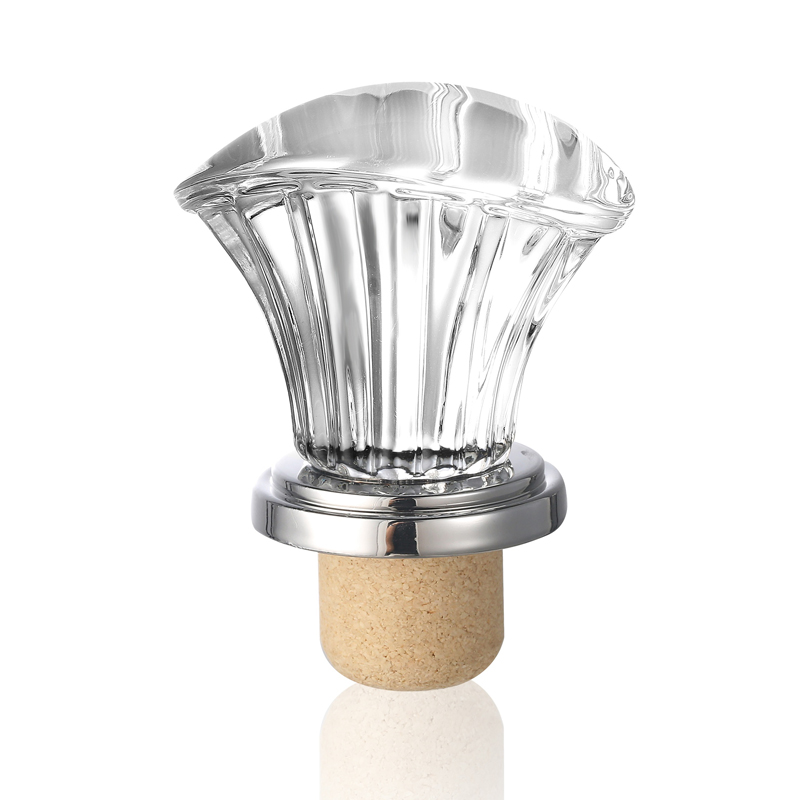
Summary of key points
In summary, understanding the importance of bulk stoppers in wine preservation is crucial for wine enthusiasts and professionals alike. Bulk stoppers play a significant role in maintaining the quality and flavor of wines by preventing oxidation and spoilage. They provide an airtight seal that keeps the wine fresh and allows it to age gracefully. Additionally, bulk stoppers help to reduce the risk of contamination and ensure the longevity of stored wines. By investing in high-quality bulk stoppers, wine lovers can enjoy their favorite bottles for years to come.
Importance of choosing the right bulk stopper
Choosing the right bulk stopper is crucial when it comes to wine preservation. The quality and effectiveness of the stopper can directly impact the taste, aroma, and overall quality of the wine. A good bulk stopper should provide an airtight seal, preventing any oxygen from entering the bottle and causing oxidation. This is especially important for wines that need to be stored for a longer period of time. Additionally, the bulk stopper should be made of high-quality materials that will not impart any unwanted flavors or aromas to the wine. By selecting the right bulk stopper, wine enthusiasts can ensure that their favorite wines remain fresh, flavorful, and enjoyable for an extended period of time.
Future trends in wine preservation
Future trends in wine preservation are focused on finding more sustainable and eco-friendly solutions. With growing concerns about the environmental impact of traditional cork stoppers, winemakers are exploring alternative options such as synthetic corks and screw caps. These alternatives not only help reduce the risk of cork taint but also provide better preservation of wine quality. Additionally, advancements in technology have led to the development of innovative preservation methods, including the use of inert gases and vacuum-sealing techniques. These methods help to minimize oxidation and extend the shelf life of wines. As the wine industry continues to evolve, it is expected that future trends in wine preservation will prioritize sustainability and the use of cutting-edge techniques to ensure the longevity and quality of wines.

